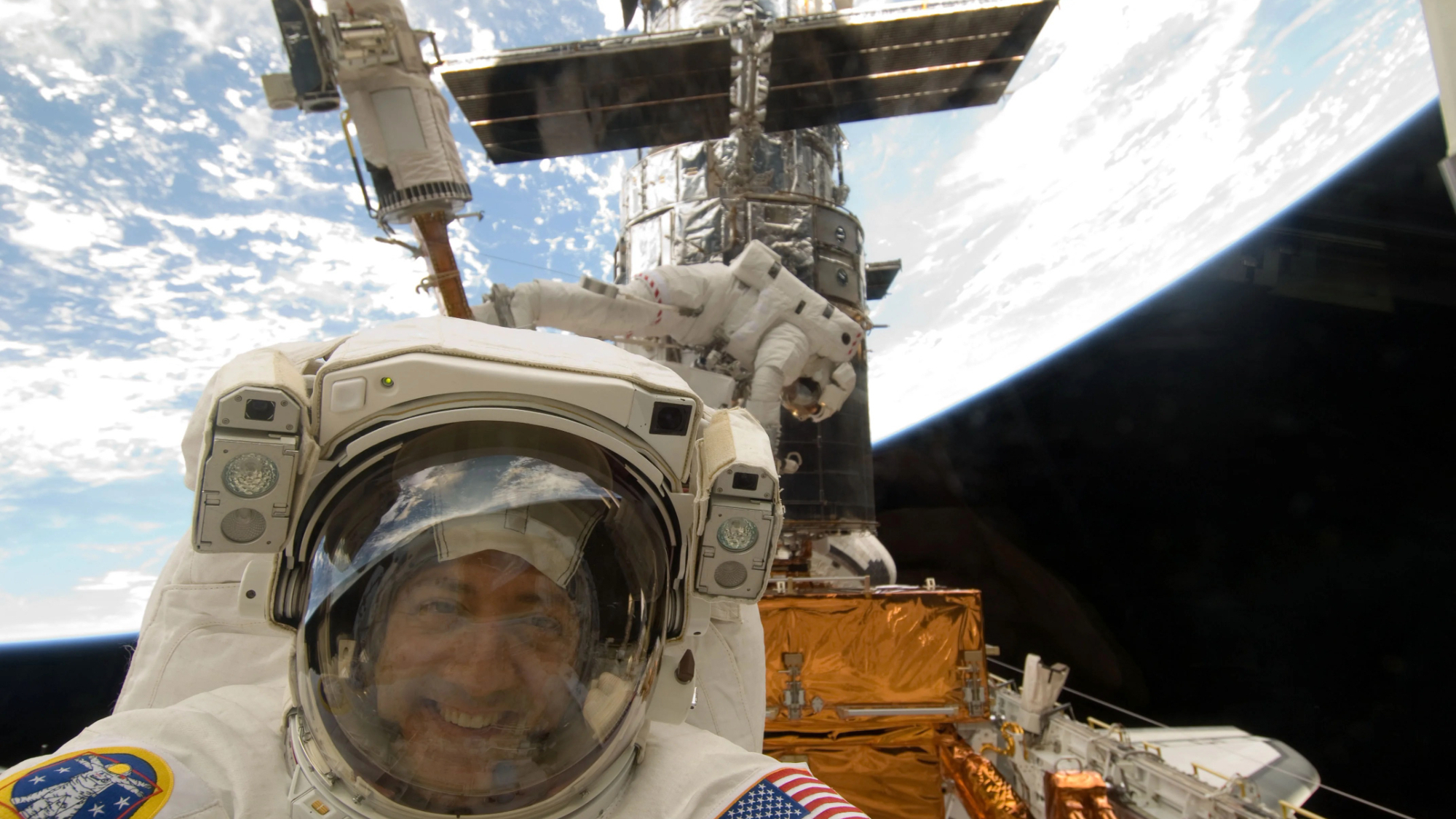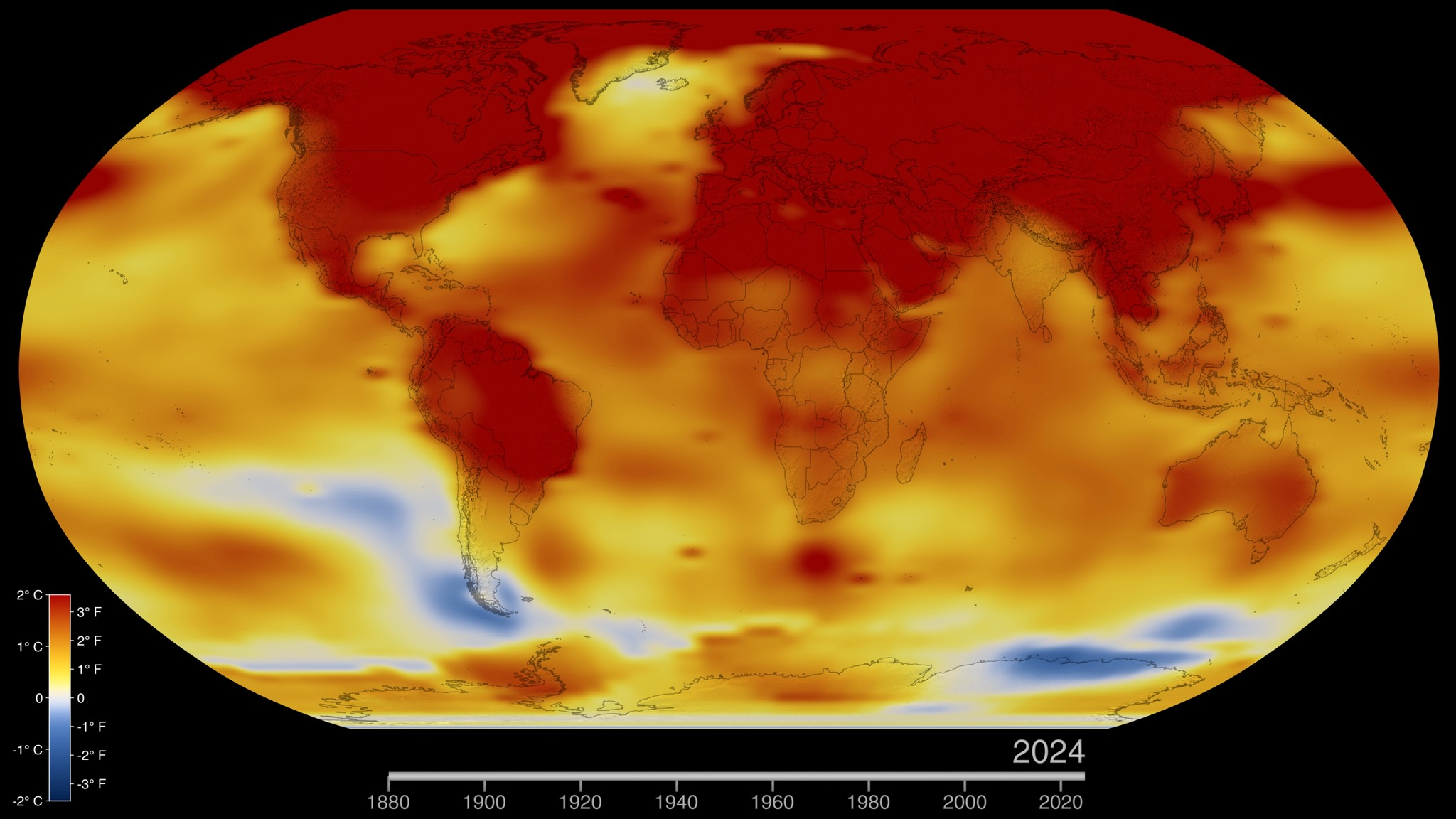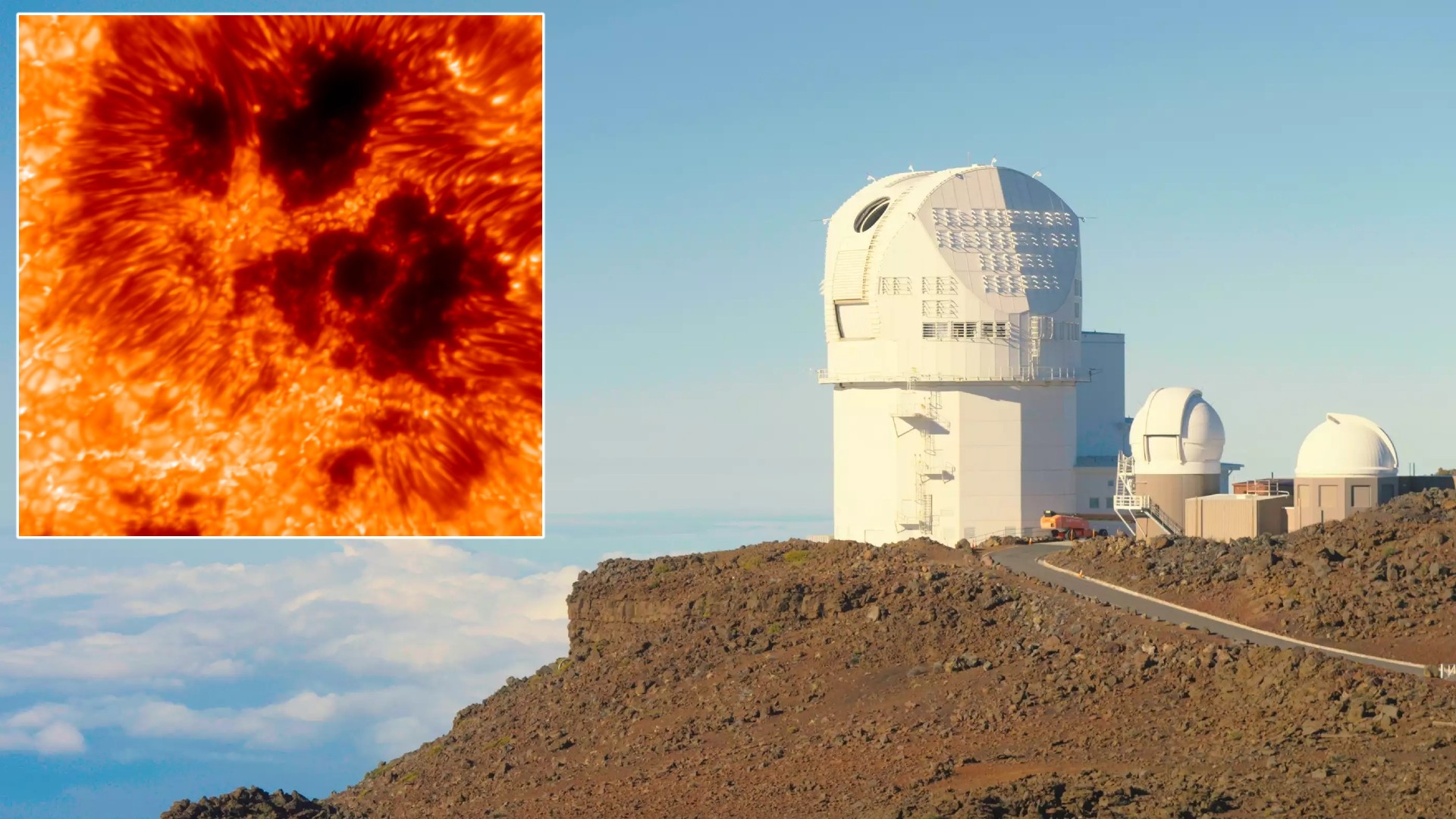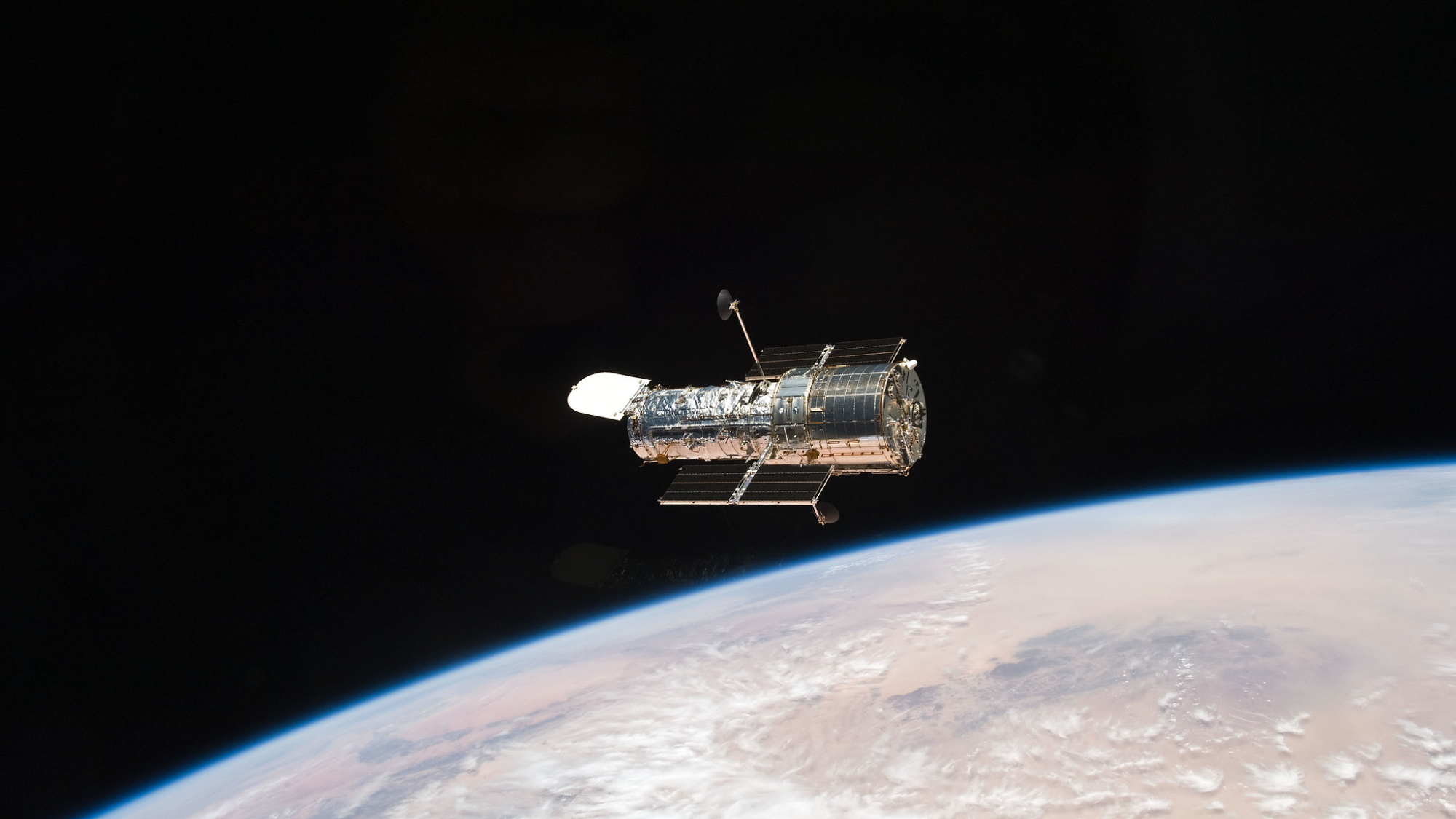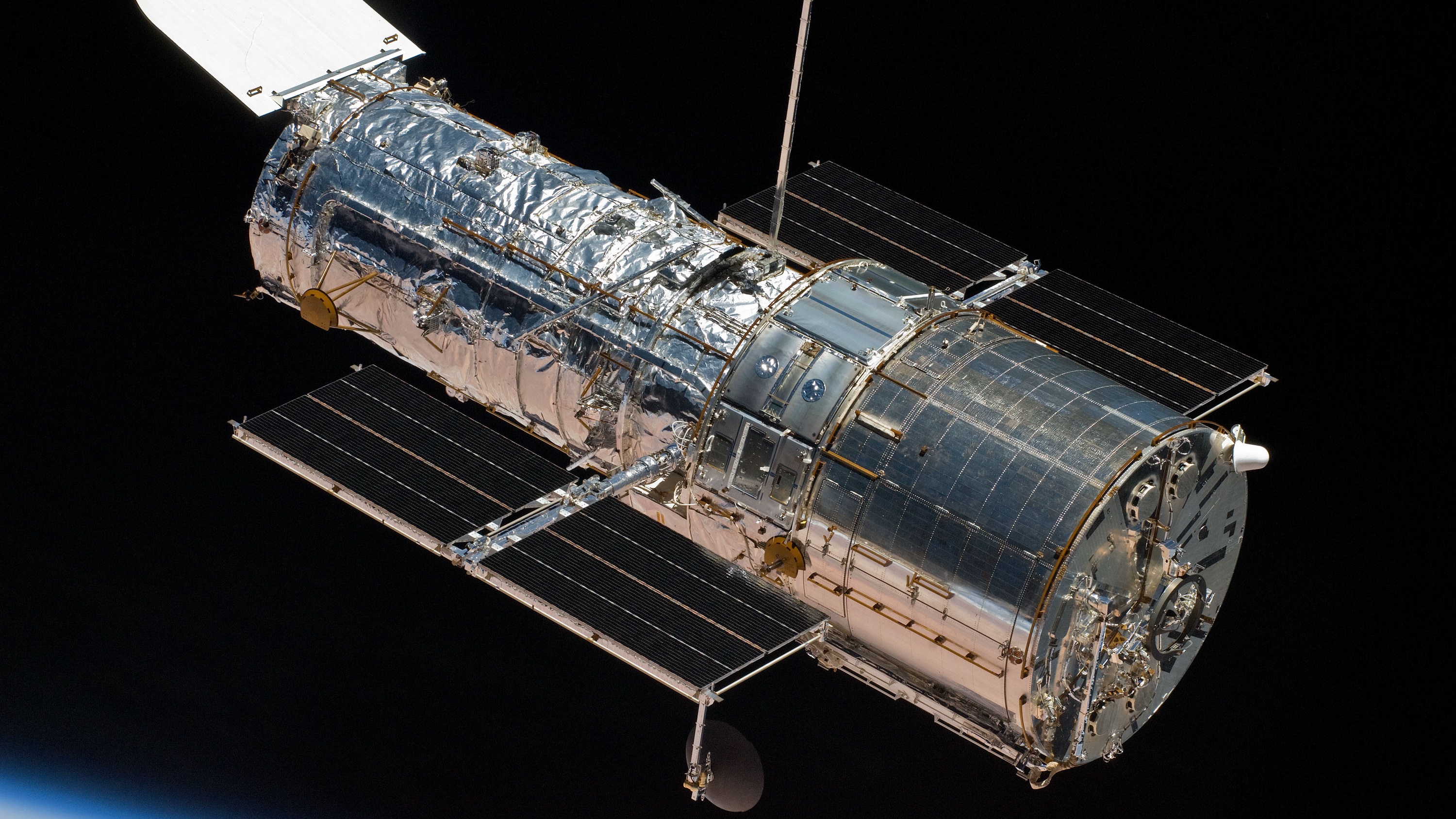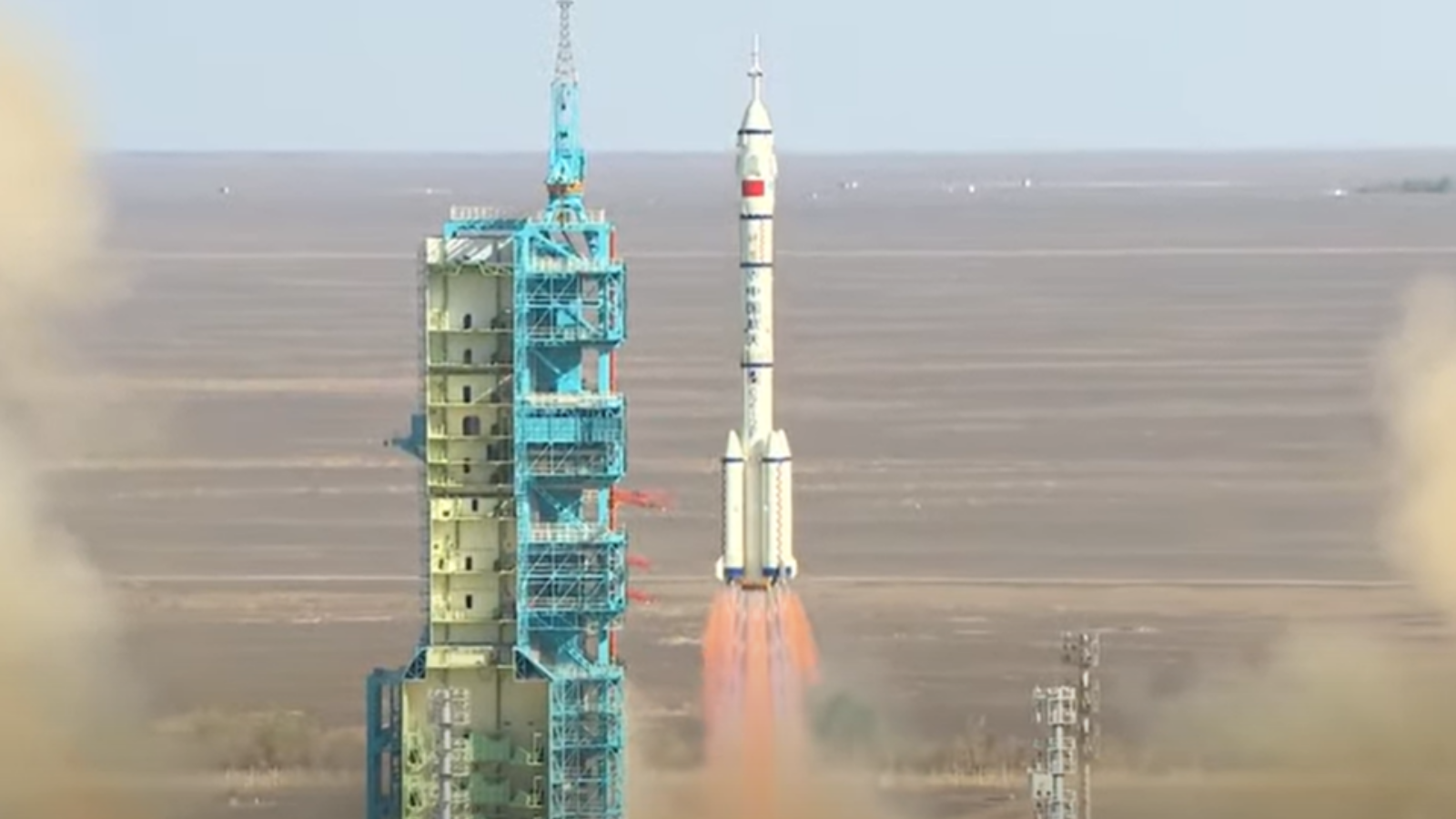'Black Hole Apocalypse' Premieres on PBS Tonight
A new NOVA documentary takes viewers on a virtual journey into a black hole and delves into the exciting new things scientists have learned about the most bizarre places in the universe. The two-hour special "Black Hole Apocalypse" premieres on PBS tonight (Jan. 10) at 9 p.m. ET/8 p.m. CT.
Hosted by astrophysicist Janna Levin of Columbia University, "Black Hole Apocalypse" breaks down the basics of black holes and explains some of the latest groundbreaking discoveries in black hole research. With the help of spectacular computer-generated imagery, Levin leads a virtual tour through the cosmos and straight into a black hole — the point of no return.
Black holes are places in space where the pull of gravity is so strong that nothing, not even light, can escape. In a black hole, the laws of physics as we currently understand them break down. While they're incredibly massive, "black holes aren't objects," Levin explains in the documentary. "Black holes are just nothing. They're empty." [The Strangest Black Holes in the Universe]
If you have a hard time wrapping your head around the concept of a black hole, you're certainly not alone. Black holes are a mind-boggling concept for even the most brilliant astrophysicists. Fortunately, though, you don't need to know anything about black holes or astrophysics to understand the science in "Black Hole Apocalypse." And even black hole experts will be able to appreciate the documentary for its entertainment value alone.
We will probably never understand exactly what black holes are and where they came from, Levin said, but scientists can learn a lot about them based on the way they interact with the universe. While the title "Black Hole Apocalypse" might imply that black holes are engines of destruction, researchers believe that their existence is essential to the structure of the universe, forming galaxies like the spiral-shaped Milky Way, home of planet Earth.
![Black holes are strange regions where gravity is strong enough to bend light, warp space and distort time. [See how black holes work in this SPACE.com infographic.]](https://cdn.mos.cms.futurecdn.net/8GbuLi8DVtx8HoZeSyndT7.jpg)
"They are objects that are really essential constituents of our universe, and not only do we not understand them very well, but they seem to be a key component of how our universe works," said Andrea Ghez, an astronomy professor at the University of California, Los Angeles. "Understanding that gives an important insight into the formation and evolution of galaxies.
"We've discovered supermassive black holes inhabiting the center of pretty much every galaxy in the nearby universe," Priyamvada Natarajan, a professor of astronomy and physics at Yale University, who appears in the new documentary, told Space.com. Those black holes appear to be shaping the distribution of matter in the universe by warping the fabric of space-time with their incredibly strong gravitational pull. "You could say that black holes dominate the universe and will very likely dominate our far future," Levin said.
Get the Space.com Newsletter
Breaking space news, the latest updates on rocket launches, skywatching events and more!
Despite the title of this documentary, there is no need to fear black holes, Levin said. Earth will not be sucked into a black hole anytime in the foreseeable future, although astrophysicists believe that everything in the Milky Way is slowly falling into the supermassive black hole at its core. But by the time that happens, our sun will have long been burned out, and life on Earth will likely have been extinct for many billions of years, she said.
While "Black Hole Apocalypse" explores the past and future of black holes in the universe, it also touches on new black hole research. For instance, Levin and other experts will explain the biggest black hole discovery of the year: the collision of two black holes that produced gravitational waves, or ripples in space-time. Those "ripples" were detected by the Laser Interferometer Gravitational-Wave Observatory (LIGO) and Virgo gravitational-wave detector in 2017.
"I think it's a remarkably rich era for black hole astrophysics," Levin said. "Black holes went from being an odd mathematical solution that not even Einstein believed was real or would ever be found in nature to being not only discovered, but now being very large populations of black holes."
Black holes will likely baffle scientists forever, Levin explained, because there is no way to find out what's inside of them. No one who travels to one will live to tell the tale. But you can at least watch Levin take a virtual journey to the inside of a black hole in "Black Hole Apocalypse."
"Black Hole Apocalypse" premieres tonight, Jan. 7, on PBS at 9 p.m. ET/8 p.m. CT. Check local listings.
Email Hanneke Weitering at hweitering@space.com or follow her @hannekescience. Follow us @Spacedotcom, Facebook and Google+. Original article on Space.com.
Also Available - Black Holes: Warping Time & Space | Video:
Join our Space Forums to keep talking space on the latest missions, night sky and more! And if you have a news tip, correction or comment, let us know at: community@space.com.

Hanneke Weitering is a multimedia journalist in the Pacific Northwest reporting on the future of aviation at FutureFlight.aero and Aviation International News and was previously the Editor for Spaceflight and Astronomy news here at Space.com. As an editor with over 10 years of experience in science journalism she has previously written for Scholastic Classroom Magazines, MedPage Today and The Joint Institute for Computational Sciences at Oak Ridge National Laboratory. After studying physics at the University of Tennessee in her hometown of Knoxville, she earned her graduate degree in Science, Health and Environmental Reporting (SHERP) from New York University. Hanneke joined the Space.com team in 2016 as a staff writer and producer, covering topics including spaceflight and astronomy. She currently lives in Seattle, home of the Space Needle, with her cat and two snakes. In her spare time, Hanneke enjoys exploring the Rocky Mountains, basking in nature and looking for dark skies to gaze at the cosmos.
